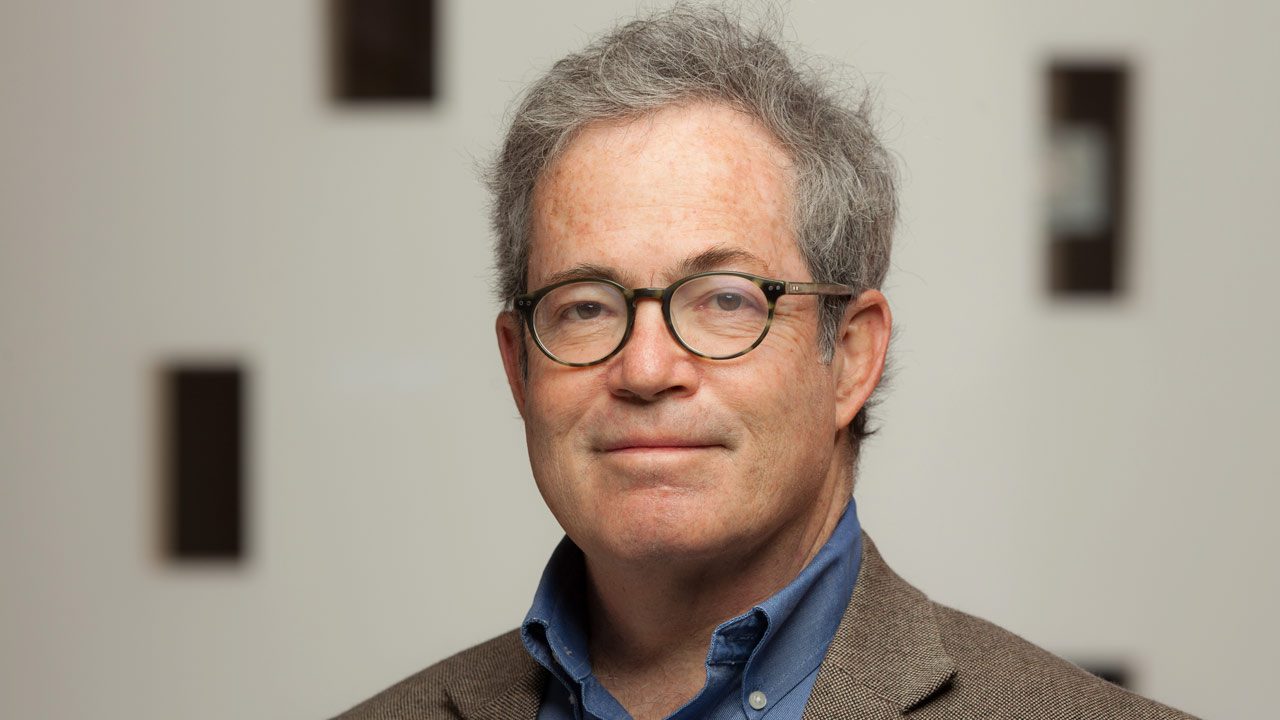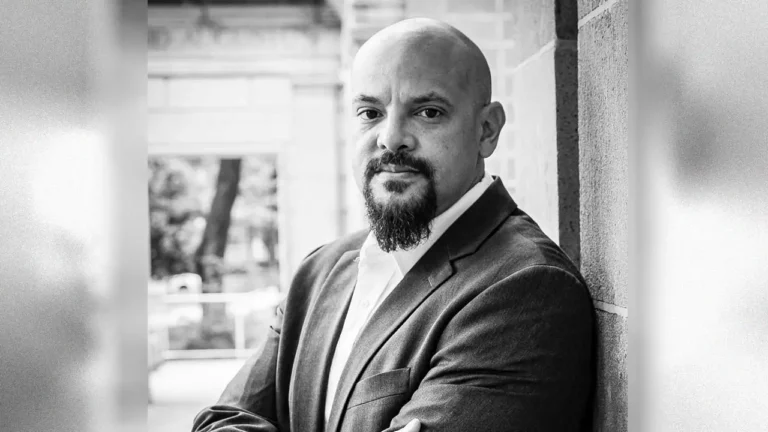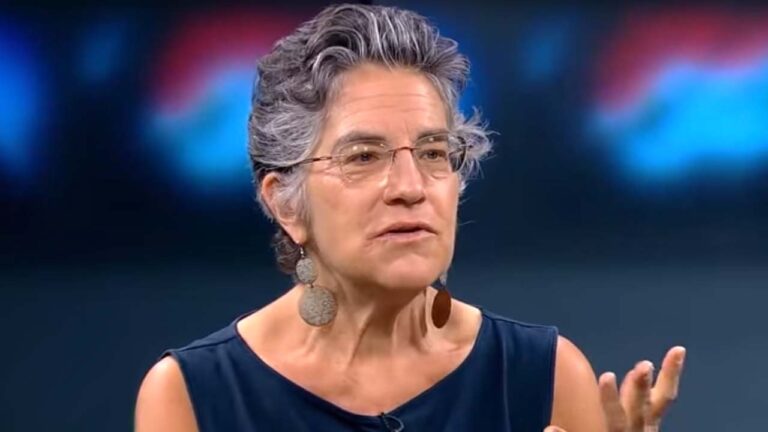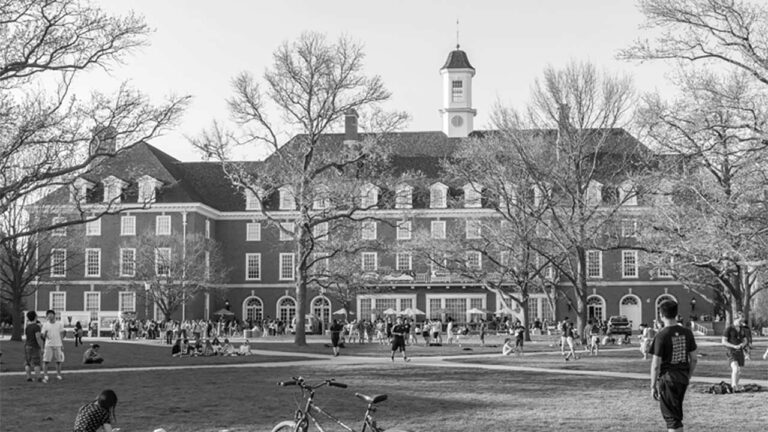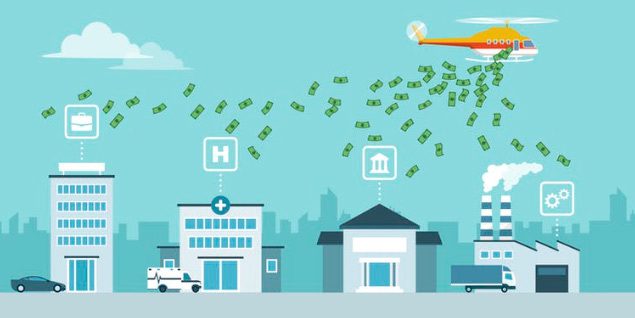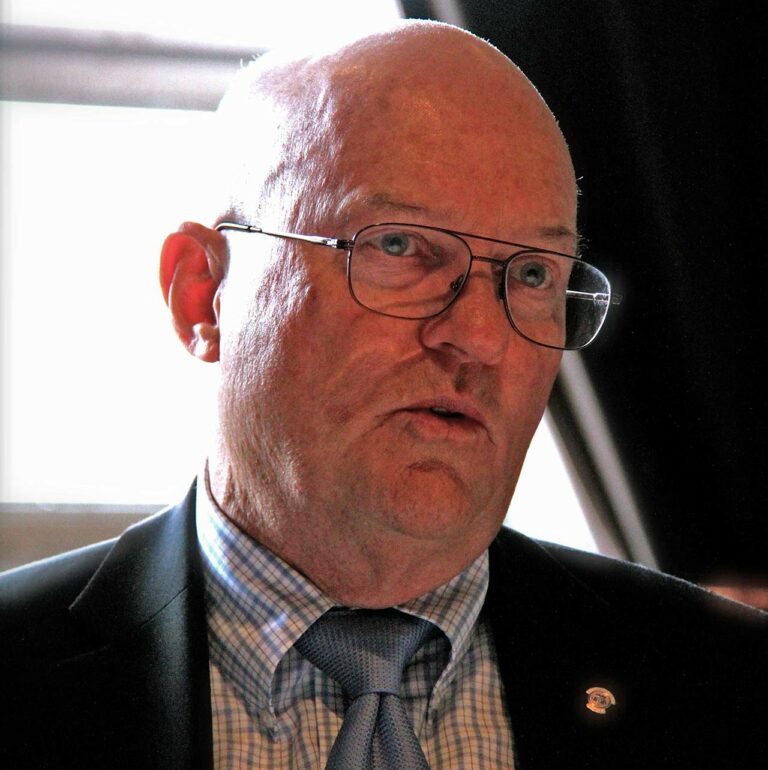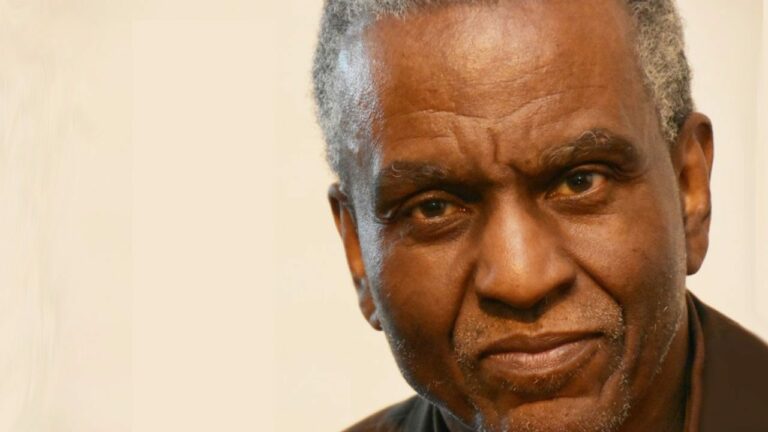The Movement is Broadening Its Demands – Margaret Prescod
From demanding radical reforms to policing to broader demands about social and economic equality, the movement is growing, maturing and becoming more inclusive. Margaret Prescod joins Paul Jay on theAnalysis.news podcast.
TRANSCRIPT
Paul Jay
Hi, I’m Paul Jay, and welcome to theAnalysis.news podcast.
Margaret Prescod is a longtime community-based women’s rights, anti-poverty, and anti-racist
campaigner. She’s the host of The Sojourner Truth, a nationally syndicated drive time public
affairs program on Pacifica Radio station, KPFA, in Southern California. That also airs in many
cities across the country. Margaret led the delegations that successfully move U.N. resolutions on
measuring and valuing unwaged work in the home, on the land, and in the community. She’s
active with the Poor People’s Campaign, a national call for moral revival. Margaret is the author
of Black Women Bringing It All Back Home, based on her experience as an immigrant. She’s the
mother of one daughter and lives in inner-city Los Angeles. Thanks for joining us, Margaret.
Margaret Prescod
Yeah, good to be with you, Jay.
Paul Jay
So in hosting your radio show and your activism, you get an opportunity not only to understand
the movement and know people all across Los Angeles. You also get a chance to talk to activists
across the country, so give us a kind of state of the movement report.
Margaret Prescod
Well, I’ll have to say that this is a very hopeful moment. In fact, I’ve just been discussing this
with a number of people. For those of us who were trained in the civil rights era and who came
through the Black Power movement, you know, the women’s movement, et cetera, we haven’t
seen a movement quite like this. Like what we’re calling an uprising that’s taking place not only
across the United States and not only in urban areas, but in places in small towns like in southern
Illinois that were former bastions of racist terror. You know, the sundown towns (ED: Sundown
towns, also known as sunset towns or gray towns, are all-white municipalities or neighborhoods
in the United States that practiced a form of segregation by excluding non-whites via some
combination of discriminatory local laws, intimidation, and violence), but also across the world.
In London, England, and Paris, France, where you had up to 25,000 overwhelmingly black
people are protesting in Paris saying Black Lives Matter in New Zealand and Australia, the
indigenous people of Australia, also calling out the racism against them. And on the face of it,
two things I want to say on that: one is that the direct attack on a state institution, that these
young people, multiracial, by the way, are saying the demand to defund the police. That’s really
important to look at and to unpack exactly what that means. Because I know it means different
things for different people. But if you peel the onion a little bit, you will see that the movement
right now, although its focus, of course, on the horrific police killings and watching a murder
actually for the world to see, which is what happened with George Floyd and the knee on the
neck. But there is a lot more to it because people have expanded their demands. And even the
signs that you’ll see on the protests, you’ll see a lot, of course, George Floyd, you know, Rashard
Brooks, Brianna Taylor out of Louisville, Kentucky. The black woman was killed in Louisville,
Kentucky, while she was asleep in her bed by the police. But underlying all of that is a situation
where you have a young population there facing a future that could be just an environmental
disaster. You’re looking at 400 of the wealthiest residents in the United States now own more
wealth than the bottom 64 percent in the US, you’re looking at the Poor People’s Campaign is
saying that 140 million people in the US, that’s 43.5% are either poor or low income. Nearly 41
million living below the federal poverty line. So when you’re looking at young people that are
facing a future where it’s difficult for them to figure out how they’re going to get an income, will
they ever be able to buy a house? Do they have to move back in with their parents and all of
what that means? You have a White House that well, on the Sojourner Truth, we talk about the
man at the White House being the white supremacist in chief. And that has borne out not only in
the United States, by the way, but globally.
When you look at the fact of him having the man who is extremely conservative for an election
in Poland within a week, and he gets a look in at the White House, which, of course, will help
him to get reelected. When you look at the relationship that the Trump administration has had
with the Israeli government with Netanyahu and how that has also helped Netanyahu with the
troubles he’s facing, including charges of corruption there.
So when you peel off the onion a bit, you see that it is about policing and defunding the police,
and police accountability. But underneath that, you also hear about the mass incarceration and
what’s going on inside the prisons. You hear the economic issues, particularly in this time of the
pandemic, where you have, what is it, 40 million people in the United States now unemployed.
So it’s not as straightforward as it looks, and we suspect myself and others that I’ve been talking
to who are involved in the movement is that there will be an effort by the political class and
national leaders that are connected to the political class to try to channel this movement into a
kind of a single-issue movement. But I’m not so sure that that’s really going to succeed. But, you
know, you never know because movements have come before where we’ve had great success.
I’ve been part of some of them, and then there is the blowback. And, you know, perhaps we don’t
know what repression will be coming. But I’m very hopeful because you’re seeing on every
sector, my daughter, for example, she’s a particle physicist. OK, one of the only black woman in
her entire field, a tenure track position anywhere, not only in the United States but indeed the
world.
She was part of an effort last week of organizing. They have something called particles for
justice, and they organized a strike for black lives. And within a few days, they had 8000
scientists from across the world signing on to their demands and taking a position in support of
black lives. And the presidents of universities issuing statements about they have to do more.
There has to be more discussion. You know, well, we’ll see where that goes, because there’s been
a lot of discussion on the one hand and on the other hand, not enough.
So all I’m saying is that there are a lot of different sectors of people who are part of this
movement and the shifting, the rapid shift. It doesn’t seem like it’s rapid in public opinion. But
remember, Michael Brown wasn’t that long ago and there were protests and uprisings in
Ferguson and beyond Ferguson. But even back then, the majority of people in the United States
did not think that policing was a problem. But now the majority do. I think it’s something like
56% that was the last thing that I saw. And that tells you something. But, you may agree with
this. I mean, just the kind of national over 100 cities in the U.S., an international outpouring of
just horror and anger and the recognition that we do have to address this problem finally, not
only in the United States but the colonial powers in Europe as well.
Paul Jay
I think there’s a, I don’t know if you think it’s coincidental in a way, the convergence of the
pandemic moment with the George Floyd moment. And it’s more than just that people don’t have
to go to school and work and have time to go on the streets, although I think that is a factor. But I
think there’s something even more important in this convergence is every so often something
happens that shreds the sort of fabric of the American mythology. I remember during Katrina,
there was about two weeks or three weeks where mainstream media was talking about class
systemic racism. There’s just you could not deny the photographs of the numbers of black people
on top of houses about to float away and the disproportionate effects of the Katrina crisis on
people of color, particularly black people and white people who get the hell out. And after two,
three weeks of this kind of talk, even some serious talk about climate change during that two,
three weeks, it all closed down again, that window of being able to have a frank conversation
about the society.
Well, I think we’re at the same thing. The pandemic has been a real dose of reality that pierces
the comfort of denial, the comfort of entertainment culture, that allows people that are not in
poverty and not in super. Crisis, which before the pandemic was most people. Now the dose of
reality, the shift, and how everyone’s life is threatened and even most importantly, large sections
of the white working-class that never dream they might be in poverty are heading there and have
no sense of what their economic future is. Sections of the working class that never felt economic
anxiety now go to sleep thinking they might lose their house and their kids may not go to
college. So, many things are converging now to give a kind of more realistic sense of things. And
it may last for a while because of the deepening economic crisis in this pandemic doesn’t seem to
be going away.
On the other hand, is the movement is the more conscious section of the movement. And I, when
I use those terms, I would guess you do too, sections of the movement that have also sort of more
socialist kind of vision and objectives, not simply reforming police departments. Not that there’s
anything wrong with dealing with police brutality. What’s your sense of that? First of all, in Los
Angeles and across the country, is the movement going to mature? Are there forces within it that
we can take advantage of this shredding of the mythology?
Margaret Prescod
I think there are forces within it that are moving in that direction. Certainly, on the one hand, and
on the other hand, there are forces that are trying to hold that back, and that’s what I meant about
trying to keep it focused on this kind of single-issue thing about the pandemic. One of the things
about the pandemic that no one could deny is that there was a big discussion and it’s less on
people’s minds now than perhaps it should be about the trade-off of the value of human life
versus the market. People were literally discussing, “Well, if you’re over a certain age and we’re
short of ventilators. Doctors are going to have to make the very difficult decision about who’s
going to get saved and who will die.” Then you look at who the population of people who are
dying. You know, a lot of black people say, hey, watch out because we’re dropping like flies. You
look at overwhelmingly black people dying from COVID. You look at the indigenous
communities, the Navajo reservation, now Navajo land, Navajo Nation, is being ravaged, and
peaking there and also in parts of New Mexico. So you see black and brown people dying. And
then there’s a whole big discussion about, well, what why is that? Is that because, you know, and
some people in the Trump administration said, well, if they just live healthier lifestyles. Right.
But clearly, there are a lot of underlying illnesses and conditions, which I have. You know, that
impacts me, and there have been people close who have died from COVID in New York City.
And I know of two black women who have died, one closer than the other. But there’s now a big
conversation going on. And public health people, black public health specialists now have an
opportunity to speak a lot more about the interrelationship with white supremacy, with day to day
racism and the emotional and physical impact that then has on people.
Like when you see a police officer and your blood pressure goes up, you start to sweat for no
apparent reason because you haven’t done anything. But because of that relationship, you don’t
know, is this going to turn into a confrontation where I’m going die or your children walk out the
door and you don’t know, you just pray “Oh heaven” that they’re going to get to come home in
one piece. So there is that worry of mothers, the worry of parents. And then there’s the
conversation that you have to have with your children. So I’m saying all of that to say that it can’t
possibly be that you look at the reality of it, that all of this could be boiled down to one particular
thing, like police abuse. Because when you unpack, why are indigenous people dying in such
numbers now? Why are black people in the United States dying in such numbers, in contrast to
their white counterparts?
So all kinds of information are now beginning to emerge more and more about the economic
disparity, for example, and what that has to do with the physical condition that people are in.
And, you know, then there is a movement like the Poor People’s Campaign that isn’t quite on the
radar of mainstream media right now. But I can tell you, they had an event this past on June 20th
that was life streamed, and the numbers are close to something like 2.5 to 3 million people
watched that live stream.
Paul Jay
That’s amazing. I’ve never heard of a live stream that did those numbers.
Margaret Prescod
That did those numbers. Would you believe this? I mean, on Facebook alone. ABC was saying
that on Facebook alone, it was 1.5 million people and then it was streamed and a whole set of
other places. That tells you something, and the reason it tells you something is, that it is not a
single-issue movement. That is a multiracial movement, that is urban and rural, that have built
centers in 46 states. Right. Not only in rural areas. And they refused to focus on one particular
thing. They say we are focusing on these pillars of evil, racism, poverty, the war, economy,
ecological devastation, and what they call the distorted moral narrative.
Jay, I have to tell you I haven’t seen a movement quite like this one, older and younger people
and growing, because after the success of June 20th, as you could imagine, all kinds of people
are flocking to that. What that tells you is that people want to be together. They don’t want to be
divided one from each other, because there is the recognition that in order to save the
environment, in order to stop the police brutality, in order for sixty thousand people not to be
homeless in the city of Los Angeles, just the city of Los Angeles, each and every night, close to
60,000 people homeless on the street, increasing numbers of them single mothers and their
children. I mean, this is the United States. This is supposed to be the world’s richest country or
whatever, and this is what is going on inside. On the rest of the Navajo land, some people have to
drive 20 miles to just get water. Right. People just can’t believe this. I mean, their eyeballs get
big, what do you tell them? You describe these kinds of conditions in the United States. So all
I’m saying is that there is that militant movement on the street for black lives.
And then you have something at the same time, building up the poor people’s campaign and a
national call for moral revival that has that great history. Going back to the Reverend Dr. Martin
Luther King, who called the first poor people’s campaign. It was at that moment a few months
later, that he was shot and killed. And there’s an overlap with those movements. So Jay there is
something going on, and I think the train is out of the station, as they say. I think it will be very
difficult right now, but they are trying. There’s a lot of repression on the street of the protesters,
as you may have seen. People listening to this podcast may have seen the, you know, the tear gas
and just the sheer brutality of the police, including the 75-year-old man in Buffalo, New York,
that was shoved down by the police. And then 45 just said the man in the White House said, well,
he just fell hard because he’s ANTIFA (anti-fascist protesters Trump has blamed for inciting
violence at protests, and has considered a terrorist organization) or such nonsense. So all I’m
saying is that there is a lot to this moment and the fact that it is a global movement right now. But
Jay that doesn’t mean that it can’t be undermined because the danger that I see injustice, by way
of a criticism of what is happening now, a danger that I see because I am an immigrant and I am
part of a global women’s network, we focus on global issues, is that movements in the United
States tend to be centered on them, and they tend to be centered on the United States and not
really looking or finding the ways to connect what the U.S. taxpayer dollars: what it’s doing in
Haiti, what it’s doing in Latin America, what it’s doing in Bolivia with that coup that happened
against Evo Morales when I was there, what it’s doing on the continent of Africa. And that is a
complaint that people in Haiti and other places who are feeling the the the the who are suffering
under the boot of the United States, where the United States, because of their military and
economic power, have their knee on the necks of so many people around the world.
And that may be what you’re getting to in terms of how advanced this movement will be,
because the movement here, will have to, in order to grow and mature, be able to make these
kinds of international connections, not only in analysis but also in a practical way.
Paul Jay
When I was in Baltimore, I lived there for eight years. I was there during the Freddie Gray
uprising. The black activists, on the whole, not everyone, but a lot had no hope of an alliance
with the white working class.
Even though when the demonstrations broke out, literally thousands of white students left
universities and colleges and joined in. Some of the biggest protests in Baltimore had more white
students than black youth. Although certainly, the black youth are the ones that led, and that
spontaneously rose up. But has this changed? You can see a whole section of white society. I
don’t even like using that word because it’s as if there’s some homogeneous white society, but I
guess to some extent there is.
Many sections of society that would have never supported these kinds of protests are, and I’m
wondering, particularly the NASCAR thing with Wallace, there’s a twist in the story today.
Apparently, the FBI says the noose that was found in his garage or whatever it was, it turns out it
was been there for quite some time and it was used to pull a door closed and that was mistaken as
a noose that was put there. I don’t know if that’s true or not, but that’s what the FBI is saying. But
it doesn’t matter because the outpouring of support for Bubba, his car driving down the racetrack
and all the drivers around it and like parading in support of him is significant. I thought given the
constituency everyone thinks is with NASCAR, has all of this affected the way black activists,
particularly younger ones, look at the possibilities for a broader and more inclusive movement?
Margaret Prescod
I think so, Jay. Prior to this particular iteration, this particular uprising, a number of us were very
worried about the mixing up of autonomy and separatism as young people are finding their way.
You know what I mean? It’s not like it was a whole civil rights movement, black power
movement, etc., that they came out of. But if you look at just the past years, you know, the
Trump administration, the Obama administration before that, the Bush-era, Clinton, etc.
So I do I see a shift in that because there were moments that people felt, ‘oh my God’, you know,
the understanding of autonomy, which is our right as women or our right as people of color, our
right as people with disabilities or LGBTQ to have our own voice and have our own
organizations that started to get, at least on the black side, mixed up with. Well, we just can’t
organize with white people. We just can’t have anything to do with white people. And there are a
number of us were old enough to remember that, to remember a similar debate going on. I think
now I sense a shift in that with this movement. And I think that there’s a lot more understanding
and analysis. There’s an underlying anti-capitalist sentiment, I suppose that’s how I would put it.
And if you understand that capitalism is a problem, that props up these divisions, props up white
supremacy, uses it for its own purposes. That’s a kind of a different mindset than you are then
alongside a white protester or white people coming out to stand off black lives. It’s different, it’s
even different from the civil rights era when you had that movement going on, although there
were certainly anti-capitalist aspects of that movement, including Martin Luther King himself,
who was a socialist and a number of people in the Student Nonviolent Coordinating Committee,
for example. And then there were some who just wanted to make capitalism better.
And if you look out, for example, I was talking to a young woman from Atlanta today from an
organization called Song, and she was making a pretty stark criticism of Keisha Lance Bottoms,
who is auditioning to be the V.P. ticket with Biton.
Paul Jay
She’s the mayor of Atlanta?
Paul Jay
She’s the mayor of Atlanta. Yes, Kishor, she’s the mayor of Atlanta, sorry about that. And talking
about how Atlanta was seen as this black capitalist’s Mecca (a political movement among African
Americans, seeking to build wealth through the ownership and development of businesses). And
she was the one that led the protests, broke out, and then Rashad was killed and spoke out as a
mother, and ‘I have a black son’, she’s black. The first thing I do is call my son to see where he is,
and she gives this whole spiel. And then she talks about how in Atlanta you’re not supposed to be
out there, quote-unquote, ‘rioting’. Right. That’s not Atlanta, and that if you love Atlanta, she told
the protesters to go home.
Right. And then there was, of course, great repression against the protesters. And this stuff
doesn’t sit too well. It’s not like, well, she’s black and we’re going to give her a pass. Right. A lot
of people gave Obama a pass for that reason. So I do think that the mindset, the analysis, the
awareness has deepened, and that opens up the possibility, and I’m not talking about kumbaya
and we’re all going to come together, forget about the differences, et cetera. But people are
finding their way to figuring out, how from an autonomous base you can work to build a
movement that is multiracial and is much more inclusive without giving up the specifics of your
own situation.
Paul Jay
Well, you’re saying the Poor People’s Campaign is doing that.
Margaret Prescod
The Poor People’s Campaign is doing that. And, I have to say something about women, because
this is another issue in the movement. You will notice that a lot of the focus has been on the
police killings of black men. Now, Breonna Taylor, of course, people have integrated her into the
protests as well. But, you know, when you look at what is happening with the women and when
you look at what happened with COVID, it was the mothers that were the women in the home
who were the front line workers. And when you look at the black community and the indigenous
communities, and Latinx communities that were so hard hit. It was the women and those families
that were really on the frontlines trying to save lives, trying to heal people, trying to figure out
how the family was going to survive, now that people were laid off and that kind of thing. And
there is a way in which in the Poor People’s Campaign, they did make a stride in relation to
women because one of the complaints about the Poor People’s Campaign is that they haven’t
been strong enough to recognize the centrality of the work that women do. The centrality of the
work of mothers who, after all, created, not just the working class, but reproduced everybody.
But this on June 20th, the Poor People’s Campaign came out with some forward-looking
demands, including they are demanding a care income to recognize the economic contribution of
routine housework, child care, tending to the elderly, and other household or nonhousehold
members and other unpaid activities related to household maintenance. This is the language
coming from the Poor People’s Campaign. It’s not coming from the Global Women’s Strike
network that I’m associated with. Right. Although it’s something that we have been pushing. And
I think there is that weakness, I see that on the street where we’re going to focus on the police
attacks on black men. So where are the black women? What is happening to black women and
what is happening to women generally? And I think that if the movement doesn’t address that
and realize that what happens in your home, whether it’s the domestic violence that has gone up,
shot up around the world as a result of the pandemic, or black women who are victims of serial
murderers by black men that nobody wants to talk about because it’s not the police or the missing
and murdered indigenous women. It’s much more straightforward to go and attack.
You know, if it’s a direct police shooting than if it is the devaluation, the ways, the myriad ways,
of the devaluation of black lives, including black women’s lives, going way back from, centuries
now, and we see that continuing. I do think the movement, they’re going to have to address that
issue because if you’re not dealing with the reality of what’s happening with the women, the
demands that the women have, the power relations between the women and the men, not only the
household but in the movement in and of itself, that will hold us back. And that’s why I was so
excited when this thing called the Green New Deal for Europe came up. I don’t know if it’s being
discussed in Canada, but turns out it’s not only for Europe and what they’re saying as part of
bringing together a fusion demand against poverty but also for the environment, they put forward
a care income for the caring of people and also for those who are caring for the environment.
I think it’s absolutely brilliant. And we did take that to the Poor People’s Campaign, that demand.
And that’s how that care income demand got in there, it’s a fusion demand. And I’m really very
very hopeful about it as that movement is growing in many places around the world. So there are
different aspects of it that the movement has got to grapple with, some of which I talked about
before, but also what is happening with the women and what’s happening to trans women. People
like to clump all trans people together. And the women are saying, look, a lot of the trans people
who are being killed are trans women. A lot of them are sex workers. So there is a lot that we
have to work out. But Jay, I see things moving very very quickly. The young people are they’re
getting it in a way that perhaps even the millennial generation, a lot of these are Generation Z, a
lot of the millennials didn’t move as quickly as this particular group.
Paul Jay
If we meaning, we the people, aren’t able to force, in all likelihood, this coming Biden
government, and if we the people aren’t able to stop the Democratic Party from trying to not just
convert the movement into a single issue, well, the single issue they’re going to try to convert it
into is defeating Trump, and while I don’t doubt that we do need to do that. If the party that takes
power is the party of Chuck Schumer and Rahm Emanuel and all the corporate Democrats,
which is very possible if we the people if this movement doesn’t mature enough to be able to
keep up its steam after Biden wins and make demands that include forcing that administration to
actually deal with climate change, to actually deal with poverty, to actually reduce the Pentagon
budget and so on. We have so little time left, particularly on the question of climate. We’re kind
of doomed, and this movement’s maturing quickly. I agree. And there are really interesting shifts
taking place in a broader public opinion. But, I think this movement needs to get focused as well
on this big picture. Which includes, for example, breaking the power of finance of some kind of
banking as a public utility. And this all sounds like demands that are so unachievable, ‘let’s try to
get step by step’. The problem is we’re in a time frame now because of climate, particularly,
where this kind of step by step, more incremental growth like there’s no time for it, and I think
it’s nuts, I don’t know how else to say this. It’s almost incumbent on the black leadership who are
rising out of this moment to take up these bigger issues because this is where the motion is, it’s
not anything new. It was the same thing with the civil rights movements in the 60s that gave rise
to the movement and all the other parts of society.
And is that I know there’s lots of socialists, black groups of all kinds all over the country, but
that’s kind of the problem. Other than the Poor People’s Campaign, I’m not even sure what there
is that has a national presence. And we so badly need a broad front that takes up all of these
specific demands. You were talking about, for example, the ones to do with women and of the
other issues that are being talked about, but has to take up the big issues because we’re just out of
time.
Margaret Prescod
Yeah, we are out of time. And on the whole thing about, we better hope that it’s a Biden
presidency and it’s not another four years of Trump.
Paul Jay
Well, if it is, we’re fucked.
Margaret Prescod
Ok, so let’s not go there, big time.
But in terms of how much the movement will be able to mature, grow, and move forward in
some ways will depend on the level of repression that is coming, because there is going to be
undermining and repression against this movement. And there is the Republican style repression,
and then there’s the Democratic Party-style repression. But either way, there will be moves to
contain, to corrupt, and to undermine this movement. And I can’t tell you how worried I am for
everybody right now. I know money is needed, funding is needed to be able to organize. But all
kinds of money now being thrown at the movement. And if you don’t have your head screwed on
right, if you don’t have your principles in order that is extremely corrupting, because that is a
way to get people fighting over money. Who is going to be paid what? Who gets what, what
organization gets what? And you get the NGO industrial complex coming in. I mean, let’s not
even talk about the political class on that level.
Paul Jay
We saw we saw this in Ferguson, we saw it in Baltimore. Yeah. It’s very, in the name of
supporting, it’s very centrist.
Margaret Prescod
We see it even in alternative media. We see it in alternative media where moves, you know, being
made against alternative media, moving it in that direction. So how this movement responds to
that coming repression, how they respond to the NGO industrial complex because you have all
kinds of people running around with organizations that have the right rhetoric, maybe saying the
right thing, but their aim and goal may not be the same thing as the grassroots struggle that
started out going in a particular way. So I think that has a lot to do with it. Like whoever is in the
White House, so to speak. And we certainly hope it’s not another four years of Trump because
the first people that are going to pay the highest price for that are going to be people like in Haiti
and in the most impoverished parts of the world, as well as in the United States. So the
international repercussions are maddening. People say they don’t get to vote for the president of
the United States, but then they’re subjected to the policies of the United States.
So, we don’t have a crystal ball to see how this is going to go, but I think there is a lot of an
awareness that the planet is in deep, deep, deep trouble and that we may have already passed the
point of no return. And there’s a lot of frustration of young people regarding the boomers, it’s like
‘you all screwed this thing up, and now we are left to live with it and have to clean up that mess,’.
So, Jay, I am hopeful. I really am hopeful that even though we are still looking at how all of this
is going to play out and how people are going to be able to find their way to each other, how
they’re going to be able to deal with the repression that will happen. I mean, my cousin Martha
Press, as she was down in Mississippi, you know what I mean? In a church, she was in Snik, one
of the snick women, where a few of them were in a church surrounded by a pack of
“klaners” (KKK members) with guns ready to kill them. Right. And they lost a lot of people. We
don’t know how many bodies are at the bottom of the Mississippi. It’s horrible to even talk about
it in that way. Look at the massacres that are happening now in Haiti where the Haitian people
are trying to throw off and finalize the revolution they started so very long ago and are meeting
repression after repression, after repression, when they get a little view of democracy. If you look
at the slaughter going on in the streets of Haiti. I mean, it makes what happened to Rashad, what
happened to George Floyd, look like a picnic where people are being massacred and burned alive
and left to be eaten by the pigs off the street. I mean, I hate to describe this stuff, but I’ve seen it.
I was there. You know that it is happening. Right. That is how horrible things can become. And
we hope this certainly isn’t a bloodbath going on, that that will happen in the United States. But I
do think that. I hate to say it, but likely there is repression to come and it could come with a
friendly face or it could be as crisis trouble. But either way, people have to be prepared for it.
They have to understand that what we’re up against isn’t any joking matter. It’s a huge job trying
to save the environment, trying to save the planet, trying to stop racism, and there they’re going
to be a lot of resources being put in the way of stopping that from happening. Causing divisions
between Latinx and black people in all kinds of nonsense, they’re going to try. So we have to
have our head screwed on right.
And I’m really glad to see that you, Jay, with the history you’ve had in journalism and the work
that you’re doing, that you’re doing this kind of work because it’s a really important voice
because it can’t just be what we see on mainstream television or mainstream media. These kinds
of podcasts, the kind of alternative work that some people are still trying to do, including
Pacifica with all of its problems. That’s that it’s going to be critical. And I’ve always encouraged,
especially when I run into young people or whatever they say, ‘Oh, you know, my mom used to
joke that she was driving me to school because I’m on the air early in the morning, drive time,
and she would make me listen to KPFA, but then they got into it, right, and, thank you for all that
they have learned just from the kind of work poll you do and the work others of us try to do. All
we can do is really do our best to get the truth out, to do our best to expose the ways in which
they’re trying to divide us and to do our best to be truthful within ourselves. Each and every one
of us to see how the state has got into us, in our relationships with each other across the divides
and do that daily work, do that daily work of what we must do. Because, Jay, if we don’t do that
work, I think the climate work and the environmental work is critical, right, because that’s all of
us. This is our home. This planet is our home. And we must do what we can to save it. So I think
that the fusion demand of the care income for the caring of people and the environment and the
work of the Poor People’s Campaign, and this young movement of this generation Z are really
cutting through and moving a lot faster than earlier generations gives us hope. So I think the,
what do you call it? I think the root is there, I think the spark is there, I think the energy is there.
And it’s a question of how we are going to face off because it’s going to be a face-off. We’re
facing off now. We’ll be going to have to do a hell of a lot more facing off if we’re gonna get out
of this mess and this earth is going to be able to sustain us in the way that it has for so long.
Paul Jay
Thanks so much and if you want to hear more of Margaret, which after this, I’m sure you will. As
I said, she’s the host of Sojourner Truth, which is a nationally syndicated Pacifica show. If you
don’t have it wherever you are, and I know her Canadian listeners here probably don’t. You can
go to the KPFA website and I’m sure you can listen to it and download it there.
Margaret Prescod
We’re on SoundCloud, Jay. We have actually quite a wide international listenership on
SoundCloud, including in Canada.
Paul Jay
Thanks so much for doing this, Margaret.
Margaret Prescod
Thank you so much, Jay.
Paul Jay
I’m gonna say this on-air, but I’m going to talk to you more, after. I’d like to do this as a regular
gig, every few weeks, we should catch up and maybe bring another guest in with us.
Margaret Prescod
Yeah, that would be fun.
Paul Jay
So thanks so much for joining us.
Margaret Prescod
Thank you.
Paul Jay
And thank you for joining us on theAnalysis.news podcast.
Podcast: Play in new window | Download
